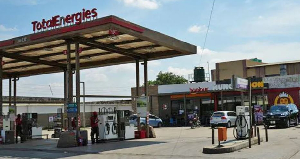Buipe (N/R), July 20, GNA – Under the Northern Ghana Food Security Resilience Project (NGFSRP) staple food production has increased from 300 to 400 percent in over 7,887 farmer households in seven selected districts of the Northern and Upper West regions.
The NGFSRP is a 1.3 million European Union funded project with ten percent matching funds from ADRA-UK.
Mr Isaac Kankam-Boadu, EC/ADRA Ghana Project Manager disclosed this at a training workshop for the project’s Volunteer Extension Workers (VEWs) in Buipe at the Central Gonja District of the Northern region on Wednesday.
He said the NGFSRP is a 20 month project being implemented by the Adventist Development and Relief Agency (ADRA-Ghana) in the Bole, Sawla, Tuna, Kalba, Central and West Gonja Districts of the Northern region as well as in the Wa Municipal, Wa East and Nadowli Districts in the Upper West Region.
Mr Kankam-Boadu said the project aims to reduce food insecurity in over 10,000 (approximately 70,000 people) farmer households and to increase their cropping strategies against soaring food prices.
The project, he said, hopes to achieve this objective through capacity building of client farmers, provision of agricultural inputs and creating market linkages for the farmers.
These measures he said would help increase household staple food production and reduce post-harvest losses, improve capacity of farmer groups in marketing agro-based products and improve agriculture, business management and life skills of the farmers.
Mr Kankam-Boadu disclosed that during the 2010 cropping season, the project supported 7,887 farmer households (62 percent males and 38 percent females) from 179 communities with 73,188 kg (73.2 tons) of improved seeds of maize, groundnuts and soybean, 21,849 bags (1,092.45 tons) of fertilizers (NPK and sulphate of ammonia) and tractor services to cultivate 7887 acres of maize, groundnut and soybean.
Giving reasons for the training of the Volunteer Extension Workers (VEWs), Mr Kankam-Boadu said the projects districts lacked adequate Agriculture Extension Agents (AEAs) from the Ministry of Food and Agriculture (MOFA) which makes the agent to farmer contact minimal or non-existent in many areas, hence the need to train more VEWs to complement the efforts of the AEAs.
Additionally he said, since the project would be coming to an end in August there was the need to train more volunteers to carry on with the projects activities in the beneficiary communities and to also make the farmers feel a sense of ownership of the project.
He said 263 of such volunteers had already been trained in the Upper West Region, while it was expected that about 382 more would be trained in the Northern region.
The Volunteers were taken through topics such as: volunteerism techniques, importance of agriculture extension delivery, adult education methodologies, soil fertility improvement and crop production techniques.
Each of the trainees received a pair of Wellington boots, cutlass, crop production manuals and a set of stationery for record keeping.
Regional News of Wednesday, 20 July 2011
Source: GNA












